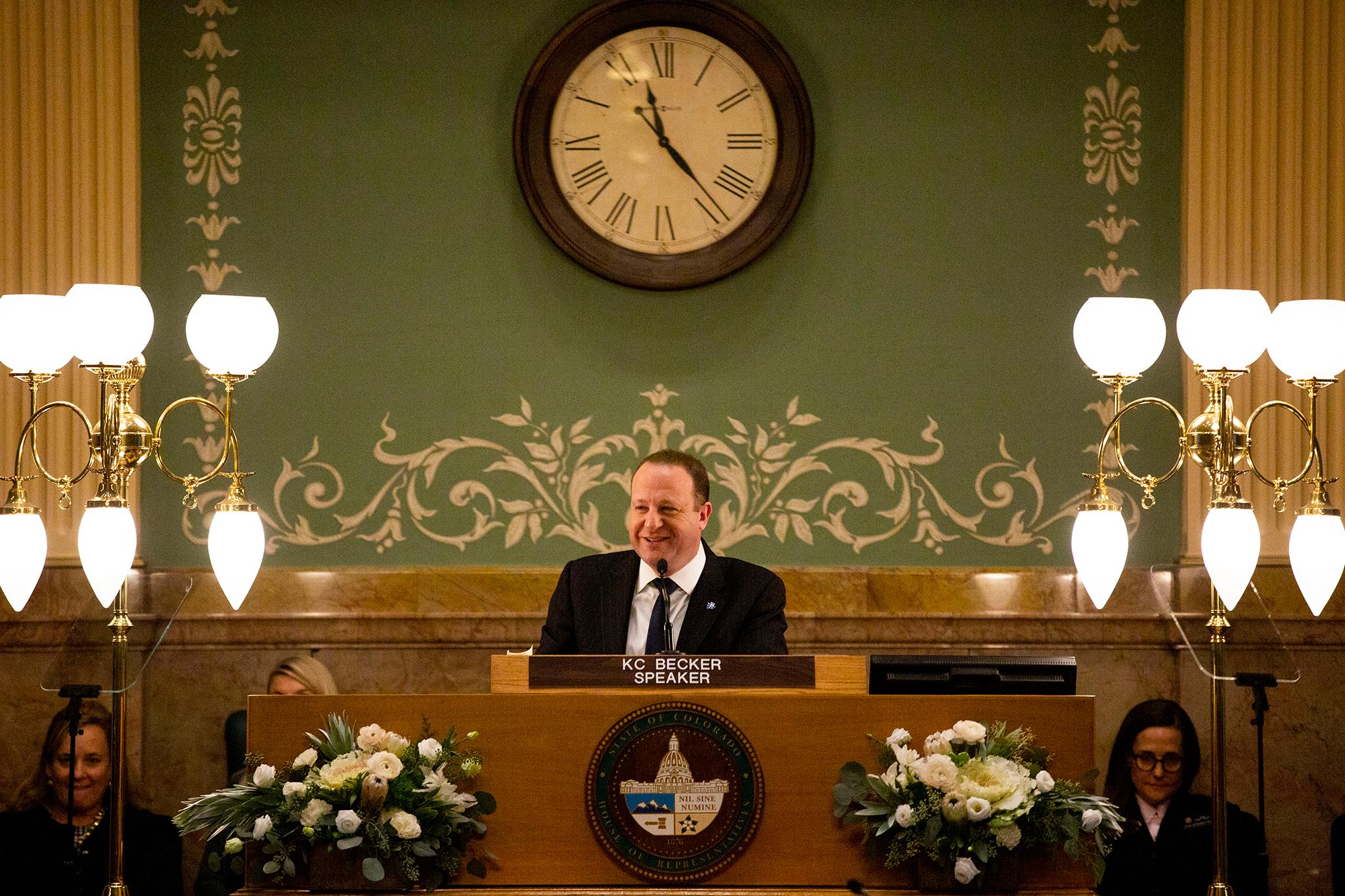
Governor Jared Polis does not support an effort to have Colorado set up its own statewide paid family leave program, and instead would like the private sector to play a central role. The governor’s comments in an interview with CPR’s Colorado Matters put him at odds with a plan some Democratic lawmakers have pushed for years and were hoping to finally make a reality this session.
“The reasons I don’t support that model are one, it would put the state on the hook fiscally, two it would take many more years to implement... We’ve heard proposals that say 2024. We don’t support that. We think 2022 is a better date to do it,” Polis said. “And third we think we should do this in a way that allows the private sector and the businesses the choice on how to do it right.”
Polis said businesses could offer the benefit themselves, or insure for it, but his main goal is for more workers to get a certain amount of paid time off to care for a loved one or to deal with a personal medical issue. Polis called the idea of paid leave a core value.
“It doesn’t mean 100 percent of your salary while you’re off,” Polis said. “Whether it’s 60, 70, 80, 90 percent it may depend on what you make.”
The Democratic lawmakers who will sponsor a paid family leave bill this session said they haven’t decided whether they will introduce a privately-implemented paid leave program like the Governor wants or stick with a state-run model as they originally intended.
“We are researching both models but haven't committed,” said Democratic Sen. Faith Winter of Westminster. She was also the main sponsor of last year’s paid family leave measure, SB19-188, which did not have enough votes to pass the legislature.
“I’m optimistic we will be making a decision on a bill direction very soon,” said Democratic Rep. Monica Duran of Wheat Ridge. She added that all of the key stakeholders continue to meet on the details.
There were a number of sticking points last session. Republicans and the business community objected to how broadly the policy defined “family,” the length of paid leave an employee could receive, how long employees would need to be on the job before qualifying for leave, and whether small businesses would be exempt. Business groups also wanted more flexibility for companies that already offer generous paid family leave benefits.
Opponents, including some Democrats, have also voiced concerns about whether such a large program would be financially sustainable. And Republicans are strongly opposed to how a state-run model would potentially be funded. Backers proposed charging a mandatory fee to employers and workers, based on a percentage of their income. Republicans say that mechanism should more rightly be called a tax and be sent to voters as required by the Taxpayers Bill of Rights.
“If a new payroll tax is imposed in the guise of a “fee” to establish a state ‘family leave’ bureaucracy, we will fight it,” House Minority Leader Patrick Neville warned in his opening day address.
A spokesman for the Colorado Senate Republicans said the caucus would like to explore a “free market solution” and was pleased the Governor was “reigning in his party when it comes to paid family leave.” Sage Naumann added, “when Colorado’s small businesses plead for an alternative and Democratic lawmakers respond with indifference, it’s a great relief to see cooler heads prevail.”
Democratic legislative leaders say at this point they want to keep everything on the table. Speaker of the House KC Becker told CPR there will be tradeoffs between a state-run or private system.
“The social-insurance model, I think, can really benefit low-wage workers and is less likely to end up in discrimination,” Becker said. “I think the private model leaves a lot more leeway to business to figure out for themselves how to provide paid family leave. I don't know right now what's going to be proposed, but I do want to see something pass."
And Democratic Senate President Leroy Garcia said it’s been a long conversation already; a Family and Medical Leave Insurance Program bill was first introduced in 2015.
“There’s a whole host of opinions,” said Garcia. “Any policy is subject to approval until that last committee sees it. So the version that we might be seeing might look a little differently once we take that final vote. I want to allow people to have that space to work on the policy without saying they’re going to be one way or the other.”








